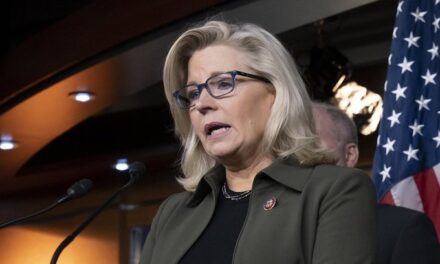Democrats registered the highest voter turnout in 16 years during Tuesday’s Texas primary as they seek to take congressional seats away from Republicans in the upcoming midterm elections, but Sen. Ted Cruz’s (R-Texas) landslide win over his GOP competitor indicates that his seat and those of other GOP incumbents will likely be secure, come November.
“Democrats need to gain 24 seats nationwide to retake the U.S. House of Representatives – a feat that would allow the party to block the Republican president’s legislative agenda,” Newsmax reported. “In the first U.S. primary of the 2018 midterm election season, Texas Democrats were fielding their largest contingent of congressional and legislative candidates in a primary in several decades, and were encouraged the strong … turnout was a sign of electoral success to come in the most populous Republican-held state.”
Winless in statewide races for governor and U.S. senator for more than 20 years, Texas Democrats were looking to turn things around Tuesday, but even with the blue party’s impressive showing at the ballot box, Republican turnout was still expected by early morning to top that of the Dems’.
Chris Wilson, a pollster for Cruz and Gov. Greg Abbott (R-Texas) is not convinced that this is the year Democrats will turn things in their favor.
“Every two years, the Democrats find some sort of factoid to fixate on and convince themselves that this is the year where they make Texas competitive – and every two years it falls flat,” Wilson impressed, according to Newsmax.
How the big candidates fared …
The Republican and Democratic winners in each of the races below will face off against each other in the November Midterm Elections this fall. By early Wednesday morning, virtually all of the precincts were accounted for in the New York Times’ report on the results, derived from numbers provided by The Associated Press (AP).
In the United States Senate race, former Republican presidential candidate Ted Cruz had little trouble dominating his competitors, taking more than 1,311,759 votes (85.3 percent) with 99 percent of the precincts in, next to GOP runner-up, Mary Miller, who’s 94,101 votes comprised just 6.1 percent of the Republican vote.
On the Democrats’ side of the Senate race, frontrunner Beto O’Rourke – a fluent Spanish speaker – nearly tripled the number of ballots cast for his closest competitor with 637,259 votes (61.8 percent), compared to 244,562 votes (23.7 percent) chalked up for Sema Hernandez.
In Texas’ gubernatorial race, the incumbent Republican routed his party’s competitors similar to Cruz, with Gov. Greg Abbott (R-Texas) raking in 1,386,319 votes (90.4 percent) and the runner-up, Barbara Krueger, pulling in just 126,944 votes (8.3 percent) with 99 percent of precincts reporting.
Victory did not come as easily, however, for leading Democratic gubernatorial candidate, Lupe Valdez, who took in 433,600 votes (42.9 percent), while here closest rival, Andrew White scored 277,082 votes (27.4 percent) – a tally drawn with 98 percent of precincts reporting. They will be in a runoff since neither competitor pulled in 50 percent of the vote.
Another impressive showing for a Republican incumbent was amassed by Lt. Gov. Dan Patrick (R-Texas), who tipped the scales with 1,148,924 votes (75.9 percent), while second place belonged to Scott Milder, with a third less votes (364,797), or 24.1 percent with 94 percent of the precincts reporting.
On the other hand, the lieutenant governor race for Democrats was a nail-biter, with Mike Collier eking out 487,548 votes (52.5 percent) to narrowly nudge out his closest rival, Michael Cooper, who had 441,318 votes (47.5 percent) when 93 percent of the precincts were reported.
When it came to the running for Land Commissioner of Texas, a familiar name in the Lone Star State, incumbent George P. Bush, doubled up his closest competitor at the polls with 846,419 votes (58.2 percent), next to 431,946 votes (29.7 percent) cast for Jerry Patterson – with 94 percent of precincts reporting.
Miguel Suazo won the Democratic bid for Land Commissioner with 641,464 votes (70.1 percent), which more than doubled Tex Morgan’s count of 273,803 votes (29.9 percent) with 93 percent of precincts reporting.
In the running for Agriculture Commissioner of Texas, the Democrat’s Kim Olson was uncontested in her bid, but the Republican incumbent, Sid Miller, did not have a hard time overcoming his number one challenger, registering 748,296 votes at the polls (55.9 percent), with Jim Hogan next in line at 304,931 votes (22.8 percent) with 94 percent of the precincts accounted for.
Miller won his bout despite much opposition from the left over his often candid takes and hard stance against Islamic militants and his past poignant attacks on former Democratic presidential nominee Hillary Clinton.
The Trump factor
In the predominantly red state of Texas that gave President Donald Trump a boost into the White House last November, many still harbor a love for the president, but this sentiment does not extend much further than conservative circles, as Texas Democrats are apparently not happy with the job he is doing in Washington, D.C. Overall sentiments toward the commander-in-chief could likely play a huge role in how key Republican seats play out in November’s midterms.
“Trump has been divisive in Texas, where he receives about 83-percent approval among Republican respondents and 85-percent disapproval among Democrat respondents, according to polling from the Texas Politics Project at the University of Texas,” Newsmax pointed out.
The president’s take on controversial issues can either make or break the Republican Party in Texas’ midterm election this fall.
“Some of the issues that helped Trump nationally – such as reworking trade deals like the North American Free Trade Agreement (NAFTA) – can be vulnerabilities in Texas, where the state’s economy is heavily dependent on trade with neighbor Mexico,” Newsmax noted. “His plans to crack down on immigrants have spurred political activism among Latinos, who make up about 40 percent of the state’s population and tend to support Democrats.”
Mark Jones, who is a political science professor at Rice University in Texas, contended that Trump was the motivating factor that brought so many Democrats to the ballot box on Tuesday.
“Donald Trump’s presence in the White House is motivating a subset of Democratic voters and independents to turn out to vote to express their opposition to his administration,” Jones asserted, according to Newsmax.
The liberal resistance against Trump was especially witnessed in the progressive college town and capital of Texas – Austin – where multitudes of Democratic students voiced their displeasure with the president’s conservative agenda at the ballot box.
“College students waited more than an hour to vote in liberal Austin, far-flung rural counties offered Democratic candidates for the first time in years and a tide of anti-Trump activism helped propel nearly 50 women to make a run for Congress,” the AP announced in a report published by the Washington Times. “Many were running in a record eight open congressional races this year in Texas – two of which are up for grabs after longtime GOP incumbents abandoned plans for re-election amid scandal.”
Hoping for an upset …
Even though Republicans have a firm grip on many seats, Democrats are poised this year to give them a run for their money – at least more than in the past two decades.
“For the first time in more than 25 years, Democrats will be contesting each of Texas’ 36 U.S. congressional districts, the party said,” Newmax noted. “Texas Democrats see the party’s best opportunities in the six Republican-held districts where incumbents are not seeking re-election. They also are targeting at least two Republican incumbents whose support bases have weakened – in part due to shifting demographics.”
Democrats are scrapping for every seat they can possibly take over, and even though the odds are against them in many races, more voters are turning up this year to rise the liberal tide in Texas.
“Runoff elections are expected on May 22 in some of the most heavily contested districts where one candidate is unlikely to receive the majority required to win outright,” Newsmax informed. “In central Texas’ 21st Congressional District, for example, 18 Republicans and four Democrats are vying for the seat vacated by Republican Representative Lamar Smith.”
Republican shoe-ins?
Even though Cruz and Abbott handily won their primary races Tuesday night, Democrats are still hoping for an upset in November with their winning candidates – but they acknowledge that the cards are stacked against them.
“Abbott already has a war chest of about $41 million – more than the combined funds at this point of every Democratic candidate running in the state for governor, lieutenant governor and the U.S. Congress,” Newsmax explained. “Abbott will have to wait on his opponent, as Democrat Andrew White – the son of a former state governor – is poised for a runoff with Lupe Valdez for the party nomination.”
Cruz might get a little more competition from his challenger for his Senate seat – especially with a large turnout of Latino voters in November.
“The best-funded Democratic candidate is Beto O’Rourke – a U.S. House member running for the U.S. Senate,” Newmax pointed out. “Fluent in Spanish, O’Rourke has been drawing big crowds across the state as he calls for universal healthcare, new restrictions on gun ownership and immigration reform.”
It was conceded by Cal Jillson – a political analyst at Southern Methodist University (SMU) in Dallas, Texas – that O’Rourke would have to pull off a major upset to beat Cruz in November, but he stressed that Democrats are nonetheless positioned to narrow Texas’ electoral gap.
“If Democrats are able to pick up one or two U.S. House seats previously held by Republicans and cut into Republican margins in the state legislature, that would show that the party’s ‘blue wave’ is no mirage,” Jillson contended.
Love him or leave him
Many voters in Texas casted their ballots in the direction of their views on the president.
Voicing her adoration for Trump while casting her Republican ballot in Dallas on Tuesday, 60-year-old dentistry worker Laura Smith would like to see more of the same over the next three-plus years.
“I love President Trump – absolutely love him,” Smith told the AP. “He has guts. He’s not afraid. He’s strong. He’s a leader.”
Yet other Dallas voters, such as 61-year-old Sarah Chiodo, was not happy with Trump and his conservative policies – going as far as switching parties from Republican to Democrat after he was elected.
“I hope that our political environment changes – I’m not happy with it today,” Chiodo told AP after casting her vote at a Dallas church polling station. “I find it very divisive and dividing of many people and negative. So, I’m looking to vote for people who are positive who care about all.”
Staying red or turning blue?
Republicans might still have the upper hand in Texas, but Democrats are looking to make the state a lot bluer by year’s end, as many more leftists cast their ballots this year than in years past.
“Democratic early voting across Texas’ 15 most-populous counties more than doubled that of the last non-presidential cycle in 2014, while the number of Republican early ballots cast increased only slightly,” the AP reported. “Total Democratic early votes exceeded Republican ones roughly 465,000 to 420,000, though those figures combined accounted for less than 9 percent of the state’s total registered voters.”
Despite the promising numbers for the Democrats at the polls, it still appears that the GOP is positioned to stay on top in the major races, come November.
“Still, Democrats haven’t won any of Texas’ 29 statewide offices since 1994 – the nation’s longest losing streak,” The AP recounted. “That’s expected to continue this cycle despite any possible ‘Trump effect’ because Democrats fielded little-known candidates against top Republicans, such as Gov. Greg Abbott and Lt. Gov. Dan Patrick. Even Attorney General Ken Paxton – who has been indicted on felony securities fraud charges – remains favored for re-election.”
—-
Copyright American Family News. Reprinted with permission.



















Recent Comments